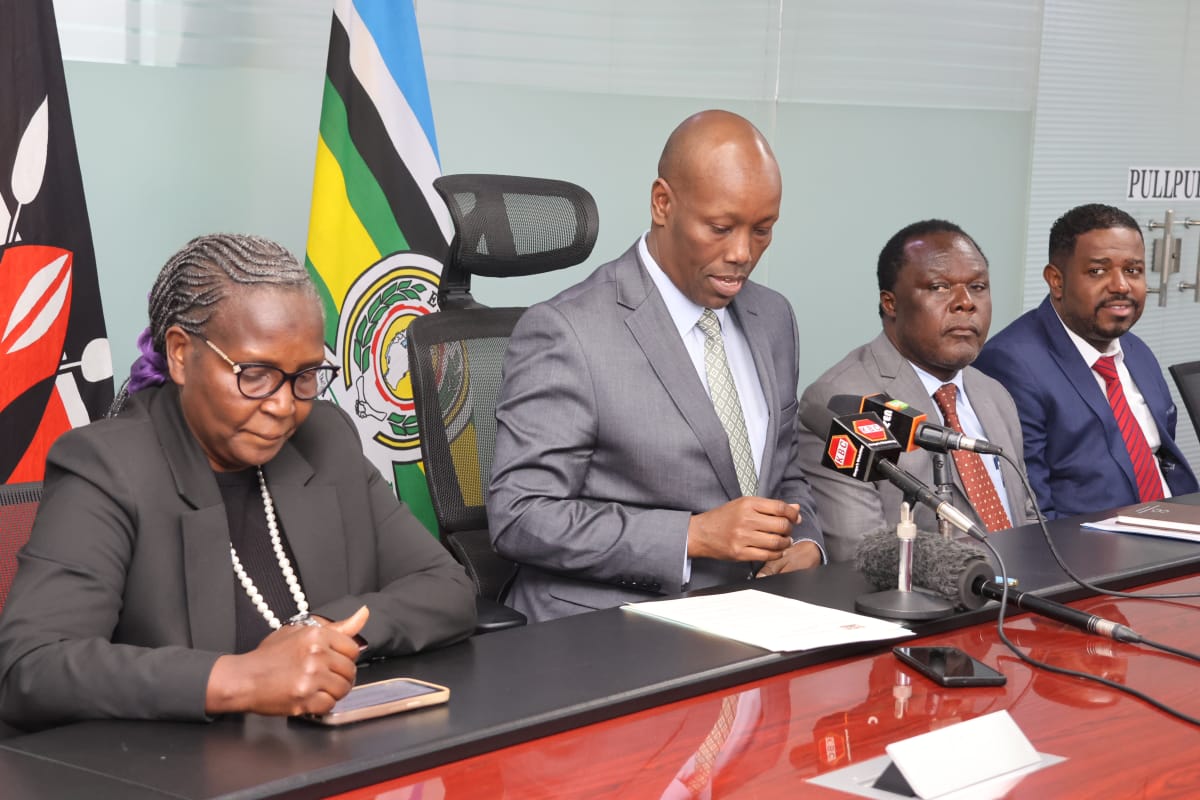Kenya Calls for Diplomatic Rethink as Tanzania’s New Trade Measures Threaten EAC Integration
Nairobi, July 30, 2025
The Government of Kenya has formally appealed to the United Republic of Tanzania to rescind newly imposed tax and licensing measures that Nairobi says are discriminatory and risk derailing the progress made under the East African Community (EAC) integration framework.
Speaking today during a press briefing, Hon. Lee Kinyanjui, Cabinet Secretary for the Ministry of Investments, Trade, and Industry (MITI), expressed concern that Tanzania’s recent trade actions—including new excise duties and a business licensing ban targeting non-citizens—undermine the foundational principles of the EAC Common Market Protocol. Hon. Lee Kinyanjui, was accompanied by Principal Secretaries Abubakar Hassan (State Department for Investment Promotion), Dr. Juma Mukhwana (Industry), and Regina Ombam (State Department for Trade).
“These measures have raised the cost of doing business by up to 25 percent for Kenyan traders, with some sectors nearly wiped out, rendering Kenya simply a recipient of goods,” said Kinyanjui. “We are appealing for a rethink. Kenya is home to many Tanzanians who live and work here harmoniously. We are simply asking for the same gesture to be reciprocated.”
The impugned measures include provisions from Tanzania’s Finance Act 2025 and the amended Excise (Management and Tariff) Act 2019, which introduced new excise duties and a 15 percent Industrial Development Levy. Additionally, the recently gazetted Business Licensing (Prohibition of Business Activities for Non-Citizens) Order, 2025 bars foreign nationals—including EAC citizens—from operating in 15 sectors, such as micro and small enterprises, and imposes harsh penalties on non-compliant traders.
Kenya maintains that these measures contravene Article 13 of the EAC Common Market Protocol, which guarantees nationals from partner states the right to establishment and operation of businesses without discrimination.
While affirming Kenya’s respect for national sovereignty, CS Kinyanjui emphasized the need for policy consistency and regional coordination, especially during a time of global trade uncertainty.
“It’s bad enough that we’re facing turbulence in global trade—we don’t need to invent another one at home,” he noted. “We believe in regional integration and working together as one community. Calls to cut ties are a last resort. We welcome dialogue and diplomacy.”
Efforts to resolve the issue are already underway. Kenya, through MITI, has been engaging bilaterally and through regional platforms. During the 1st Extra-ordinary Sectoral Council on Finance and Economic Affairs (SCFEA), in which Kenya participated, the EAC Secretariat was directed to compile a list of tax measures inconsistent with the Customs Union Protocol by 30th August 2025, and to harmonize the definitions of “imports” and “exports” by 30th June 2025.
Further bilateral engagements with Tanzania are also scheduled, including a technical meeting on tobacco product trade on 4–5 August 2025 in Arusha, and a Joint Trade Committee session on levies and charges from 11–12 August 2025.
Kenya remains optimistic that these forums will produce a resolution aligned with the EAC’s principles of free movement of goods, people, services, labour, and capital.
“In line with the EAC spirit of ‘one people, one destiny,’ we are committed to upholding non-discrimination, transparency, and equity in all trade decisions,” CS Kinyanjui concluded.

